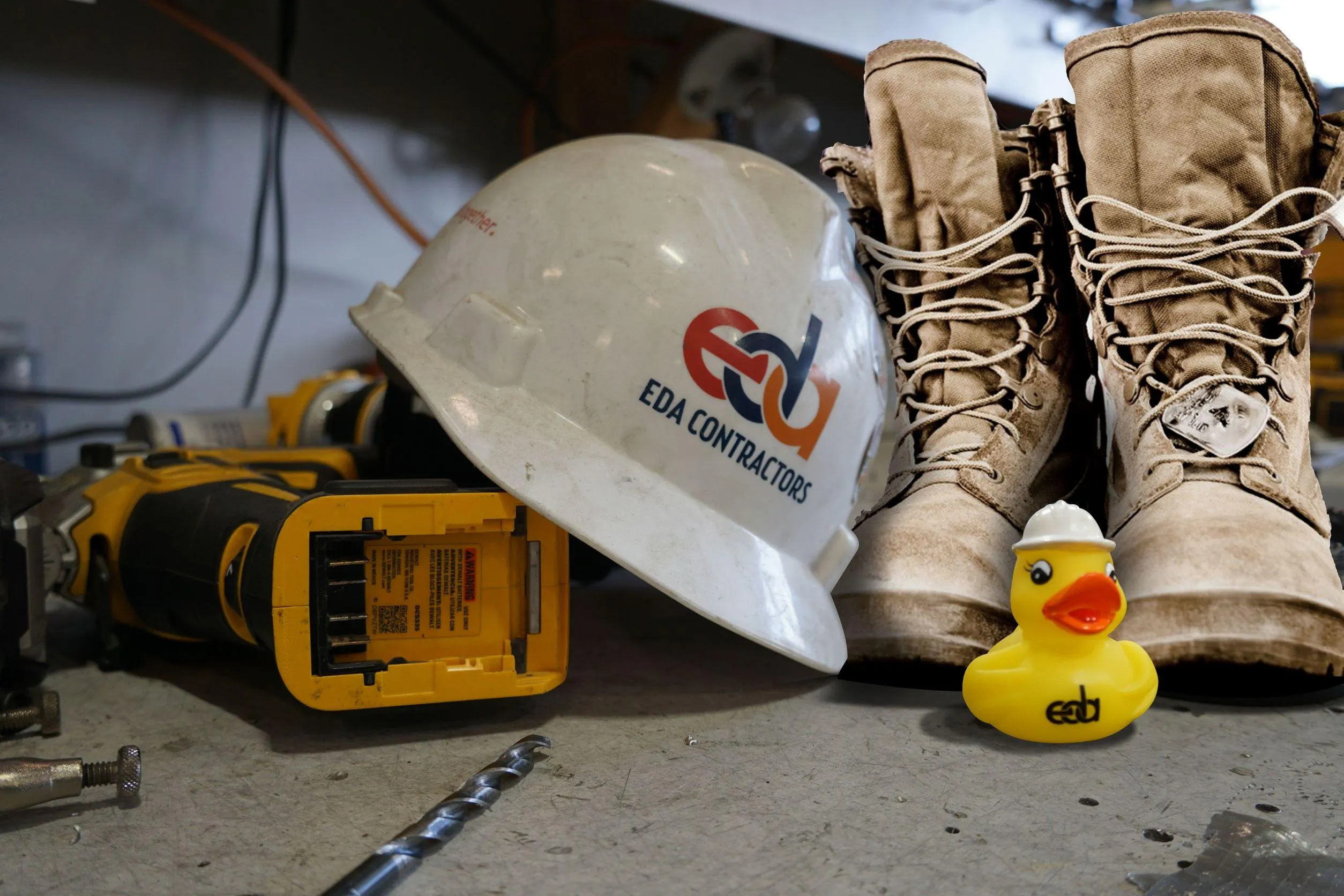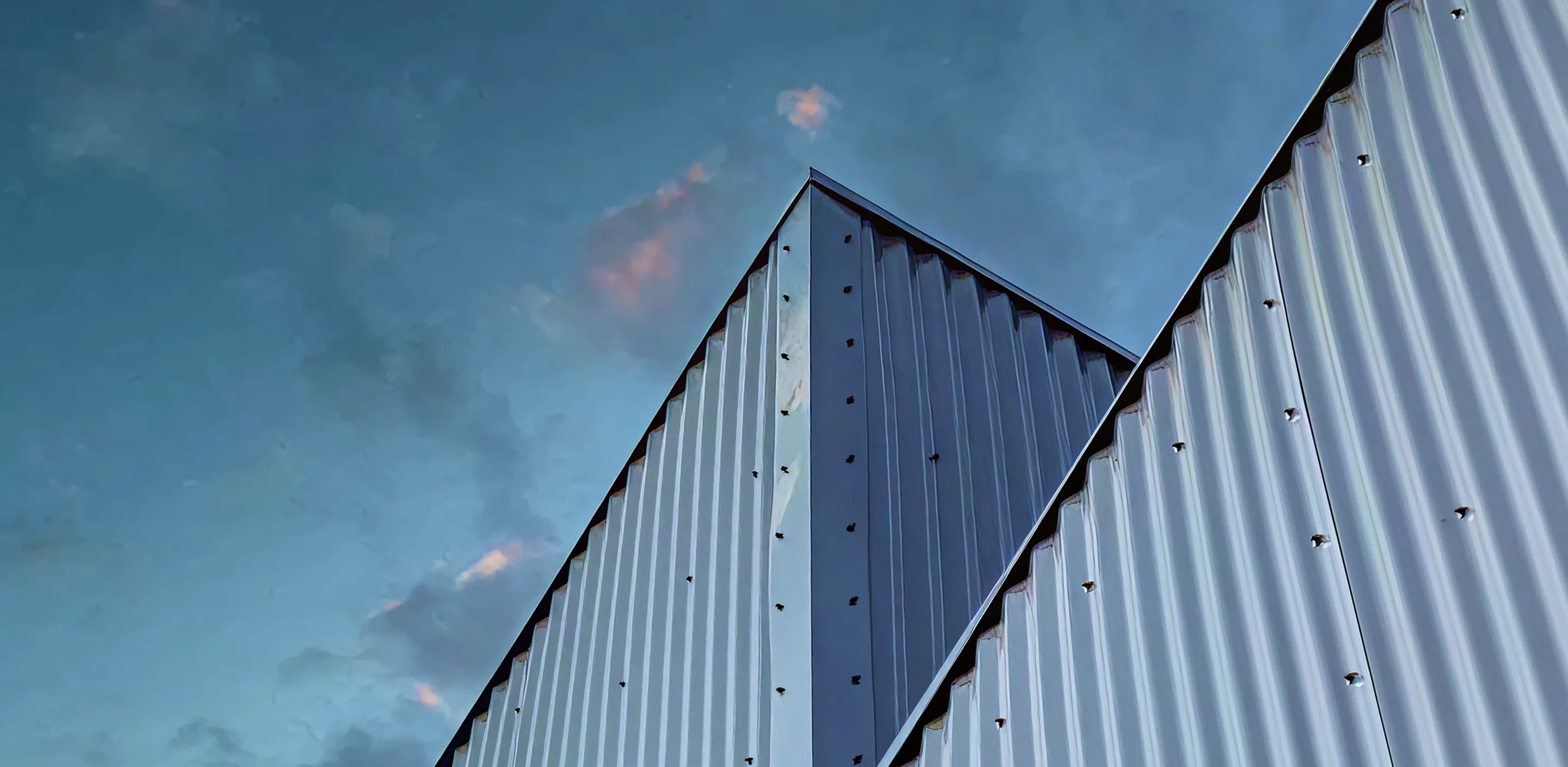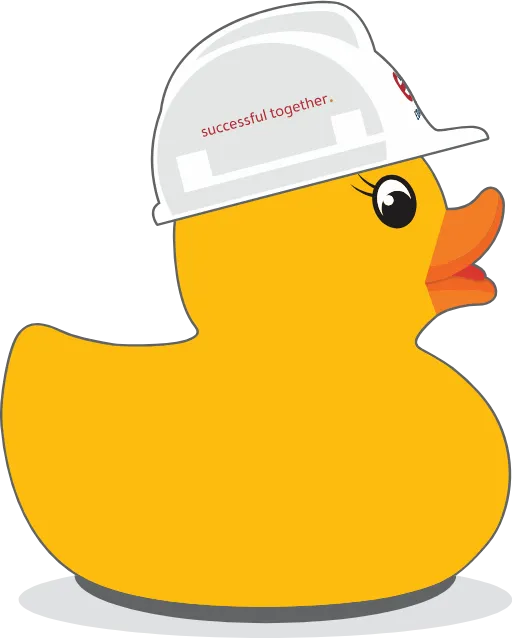EDA Celebrates Veterans Day
11.10.2022
Veterans Day is the perfect time to thank those who served. At EDA, we recognize the value that Veterans bring to our workforce and our industry as a whole.

Veterans Day is a time for us to stand united and pay our respects to those who served. This day was originally celebrated in 1918 as Armistice Day, a day that marked the end of World War I. Today, Veterans Day is a federally recognized holiday that is celebrated annually on November 11th.
Military Veterans play an important role in all industries, but much of the community’s skillset is aligned with what makes individuals successful in construction. Despite approximately 200,000 Vets transitioning out of the military each year, only about 7% of the construction workforce is made up of Veterans. EDA recognizes the immense skill and experience that Veterans bring to our workforce, and this Veterans Day we are excited to acknowledge why they can thrive in this industry. We also see it as a time to reflect on how each of us can make the construction industry more appealing to the Veterans community.
“Military skills can benefit the construction industry because of the volatile and complex nature of some of the projects. There are so many things that can go wrong on a site, the ability to handle stressful situations is a must. A lot of veterans are accustomed to setting priorities and meeting deadlines in some of the most dangerous situations. These experiences will allow them to remain calm and collected when it matters most.”
Tim Welcher | Operational Excellence Specialist | Army Veteran
Leadership
Veterans are accustomed to a structured, hierarchical system and understand how to communicate with others to achieve common goals. This type of leadership is key to success in construction, as jobs take collaboration between office staff, field workers, and third parties. Currently 17% of veterans work in management, business, or financial services, each fields that expect strong leadership ability.
“We are trained to be independent thinkers, and doers. We lead and strive to complete every task to perfection and are trained on how to communicate effectively and work as a unit. Not one person is more important on the mission than the person next to you. Getting everyone to work together is paramount for success.”
Brian Torphy | Trim Manager | Coast Guard Veteran
Military Veterans come home ready to learn and teach new skills to their colleagues. EDA Human Resources Assistant and Marine Corps Veteran, Sarah Browning says, “Most times this can help us think differently, to find solutions when we don’t have all the tools readily available. At some point every military member is put in a leadership role, where they must prioritize tasks, delegate, and create a standard.” Having individuals that are ready to take on leadership roles and better the people around them are needed at all levels of our industry.
“In the service, attention to detail is one of the first things you learn along with loyalty, respect, and discipline. Most Veterans are extremely hard workers and would really appreciate any opportunity.”
Tony Melle | Superintendent | Air Force Veteran
Teamwork
Camaraderie is integral to success in the military. Military veterans understand that positive results come from working together and learning from each other. Strong professional teams are successful at completing projects and overcoming obstacles. When issues arise on projects, each person on a crew is expected to have the drive to overcome them. Veterans come prepared to overcome these challenges head on. EDA Trim Manager and Coast Guard Veteran Brian Torphy, reflects saying, “Being part of a crew, can mirror being part of a unit. I was deployed for 9 months to Korea, and those with me became my brothers. We depended on each other every day. Just like being part of a crew on a job for an extended period.” Construction crews often create a family-like bond, and grow an immense loyalty with each other. This mindset from Veterans helps them to fit in well with their colleagues.
Motivated and Reliable
Veterans are known to be reliable and self-motivated. Motivation is shown at high levels as extreme levels of discipline are required during drills. Likewise, individuals and teams are required to remain accountable for themselves and their crews. This motivation is a highly transferable skill and has added value as inspiration to construction colleagues. The construction industry experiences tight deadlines, making self-discipline and reliability key traits to driving success for the business and customers.
“Leadership, teamwork, values, and work ethic are just some of the transferable skills. Veterans know how to provide purpose, direction, and motivation to their teams. They have extreme ownership for their actions and will execute tasks with minimal supervision.”
Tim Welcher | Operational Excellence Specialist | Army Veteran
Having individuals who are reliable and motivated to complete their jobs helps crews be recognized and allows them complete the job correctly. Air Force Veteran and EDA Superintendent, Tony Melle says that “In the service, attention to detail is one of the first things you learn along with loyalty, respect, and discipline.” In an industry where it is easy to take shortcuts to meet deadlines, it is important to have workers and leaders who are motivated to get the job done right.
Comfortable with Changing Work Environments
Construction workers need to be accustomed to changing work environments as they rotate between jobs. Further, they deal with changing weather conditions, project scopes, and more. No two days look the same in construction, and workers are expected to make quick adjustments to ensure that they get the job done.
“Working with small teams and the comradery is very similar to what you experience in the military, and it helps form long lasting relationships. Veterans are also experienced in working in all kinds of conditions which make us resilient."
Sarah Browning | Human Resources Assistant | Marine Corps Veteran
Veterans’ experience in unpredictable environments translates well to the construction industry. Many Veterans are willing to travel to projects and are open to the rapidly changing working environments, this is a big barrier that give Veterans an advantage when they start working in construction.
Culture Drivers
Military Veterans are used to spending large amounts of time with their fellow soldiers, and this often results in a family culture amongst crews. Having a strong work culture is integral to attracting and retaining Veterans in construction. In addition to culture, Veterans value work-life balance, as they have often spent great deals of time away from their family while deployed. Offering a flexible schedule whenever possible and a comprehensive benefits package can help enhance the appeal of your company to Veterans.
“I don't know of any construction company that does the things that EDA does for us. I love working with the EDA Cares Committee and getting to help with charities like Make-A-Wish and Heroic Gardens.”
Tony Melle | Superintendent | Air Force Veteran
How Construction Companies Can Better Attract Vets
Tim Welcher, EDA’s Operational Excellence Specialist and 24-year Army Veteran recommends construction companies connect with the Transition Assistance Program (TAP), which is mandatory for all service members to attend as they leave the military. Welcher reflects saying how “During TAP there is a block of instruction that teaches Veterans how to use LinkedIn, build profiles, and search for opportunities. Individual companies would greatly benefit by leveraging LinkedIn to its full potential.” Improving presence on LinkedIn and making a concerted effort to hire Veterans is a great way to tap into this valuable talent pool.
“Unions might consider offering fast-track apprenticeship programs. Veterans receive the GI Bill and often attend colleges for free that also award credits based on military experience. This can be difficult to compete with.”
Tim Welcher | Operational Excellence Specialist | Army Veteran
Or course, making construction more appealing to Veterans does not happen overnight. To start, it is important to focus resources and educational efforts on the Veteran community and let them know about the range of opportunities that are available to them.
“Hire them. There is a Helmets to Hardhats program in the Union. I think everyone should just give Vets a chance.”
Sebastian Hass | Carpentry Foreman | Navy Veteran
It takes time to gain trust with Veteran groups, but it is imperative for our industry to develop these relationships in order to recruit the best talent.
Join Our Team
EDA encourages veterans to apply to open positions at careers.edacontractors.com.

